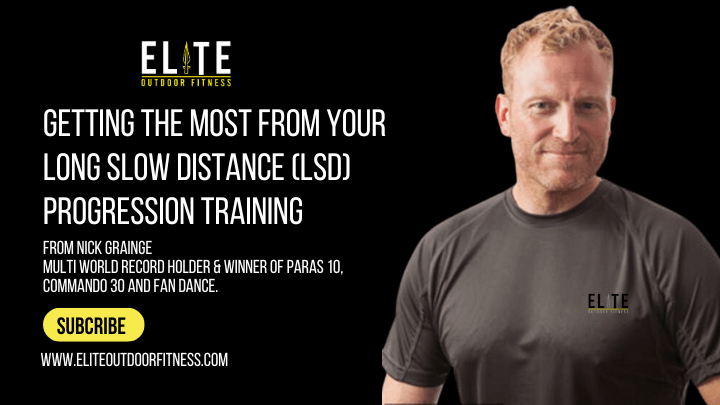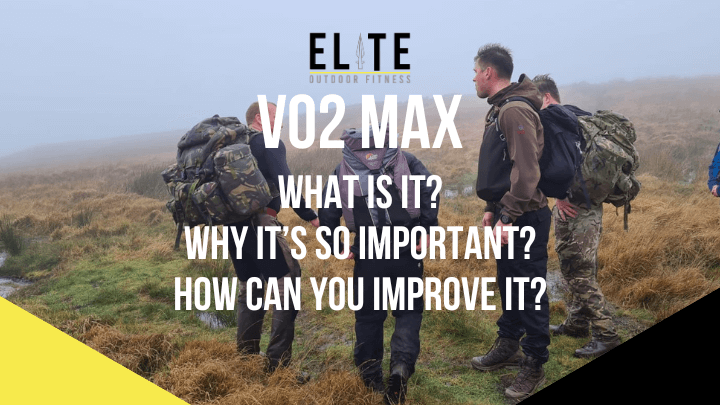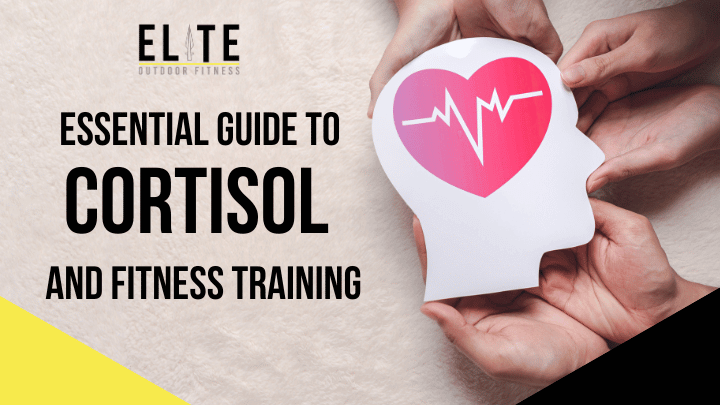Masters Training: Prioritising Health
In this article Rob looks at how your physical prioritises might change with age…
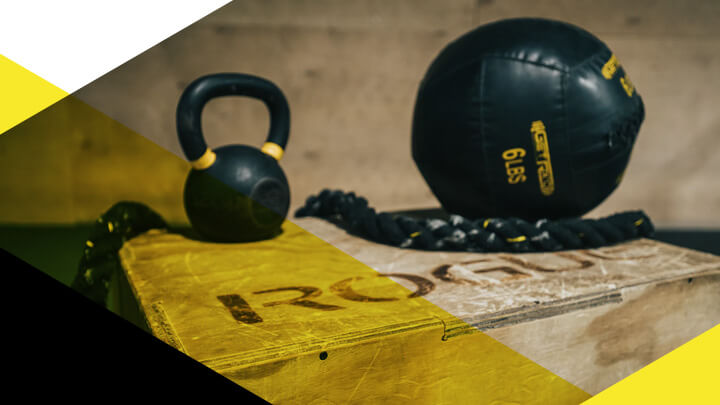
The initial challenge writing this article is that “everyone is different”. We all have different genetics, different anthropometrics, different priorities and different experiences. Surely a “one size fits all” strategy cannot apply! However, the more I thought about it, the more I realised that our differences may not actually be that important.
As humans, we are actually more similar than we are different. Especially when it comes to ageing!
Ageing can be defined as an accumulation of deteriorative changes that ultimately impact the ability to survive. Such changes occur over time as a result of cellular and molecular damage. The end result impacts function, use and overall physical performance. There is no escaping this. Unfortunately, it’s beyond human control.
What is Physical Performance?
Physical Performance can be defined as a state of ‘Health’. More specifically, the ability to perform physical tasks effectively and efficiently.
What is Physical Health? The simple definition of Health is to be ‘free from injury or illness’.
Physical Health versus Physical Performance
In the context of sport, an athlete will strive for optimum physical performance in the quest to succeed. It is in this quest, during training and competition, the Athlete will push the body to its absolute limit/s. Athletic training is the stimulus that enables the body to positively adapt and thus increase performance capability. I.e get faster or stronger. One important omission here is RECOVERY.
As training intensity and volume increases, the athlete will find it tougher to recover. The training program has to allow enough time for the athlete to recover between sessions in order to positively adapt. Elite athletes will reduce recovery time to the absolute minimum in order to achieve the best results. This clearly introduces risk that there is not enough time to recover – ultimately increasing the risk of injury.
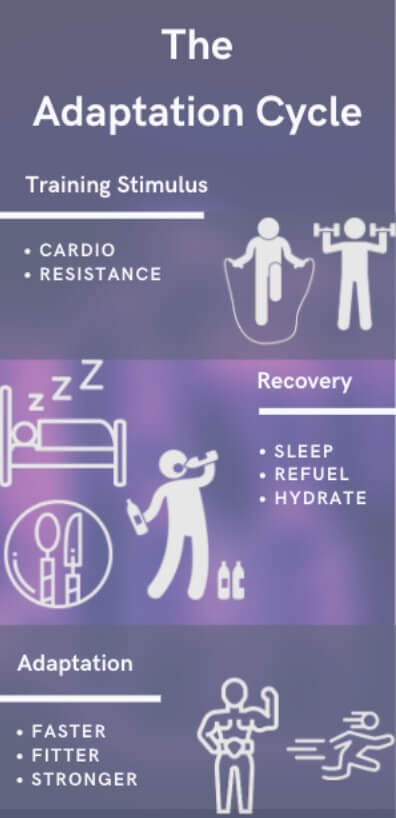

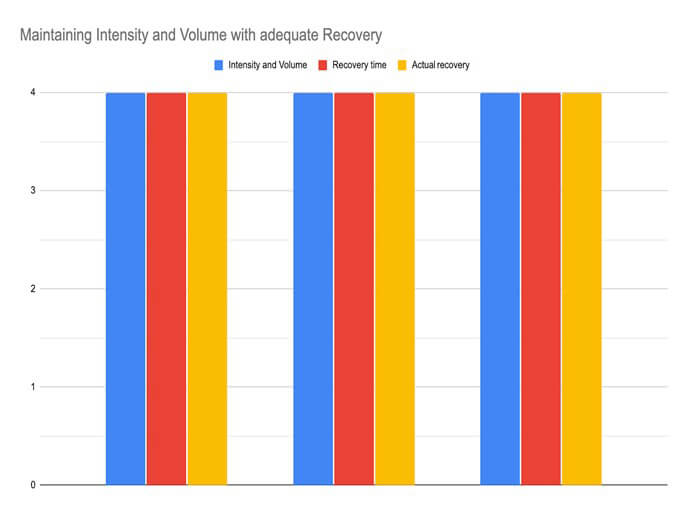
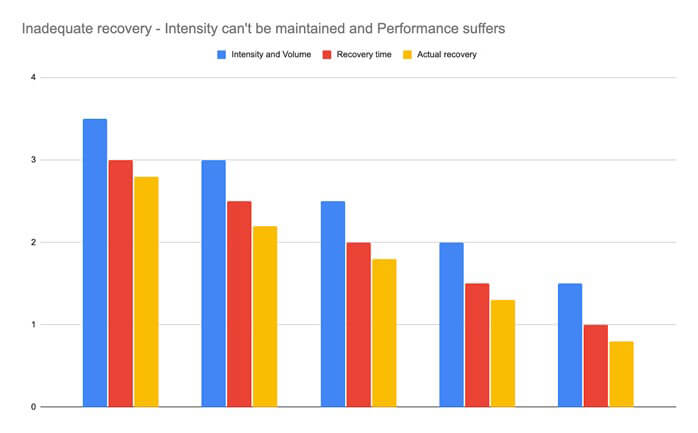
As we age, the body will find it more difficult to recover. This is due to the deteriorative changes associated with ageing. Coaches and Trainers will typically manage this by reducing the volume and intensity of training, and also increasing recovery time. I.e. to reduce the risk of injury.
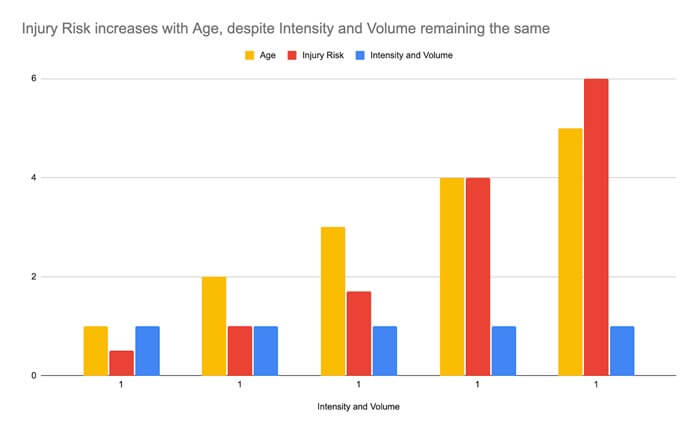
The introduction of injury (i.e. the absence of Health) will obviously impact the ability to train and thus improve. Ultimately, it may also mean that the Athlete will not make it to an event.
As a Master, I’ve personally learned to prioritise health over performance. It’s unusual to be a professional Athlete at 35+ and make a living out of Sport. However, at 35+, it’s typical to have other priorities:
- A job
- Dependents
- Other responsibilities
Injury, i.e the absence of Health, adds risk to those priorities. It also adds risk to the ability to actually make it to a Sporting event.
Covid-19
In today’s pandemic situation, any discussion about Health and Fitness surely can’t ignore Covid-19. Whilst it is not the primary scope of this article, we must consider the impact athletic training has on our immune and respiratory systems. Since the adaptation process relies on the recovery from systematic damage to cells, any state of damage can surely compromise the ability to fight disease and illness.
Covid-19 is a respiratory illness that has lasting effects on the body. It’s not simply a case of being ill for a week. It has the potential to not only halt training progress, but put training back months – if not years. More than ever, it’s vitally important to avoid any such compromise by potentially attenuating training intensity and volume. In addition, every effort should be made to ensure sufficient recovery between training sessions and avoid the accumulation of fatigue.
Summary
It is clear that there is no escape from the ageing process. However, the more time we can remain Healthy (free from injury or illness), the more chance we have to maintain physical performance and succeed in our Athletic endeavours.
As Masters, additional consideration should be given when prescribing training volume, intensity and recovery. As we age, Health is EVERYTHING. We should do everything possible to maintain and prioritise Health in order to prioritise long term Performance.

Related Articles
If you've enjoyed this post why not try these related articles…
